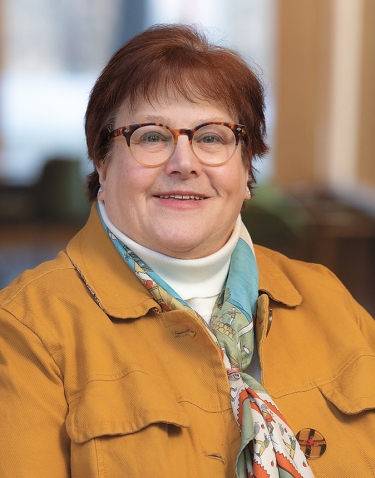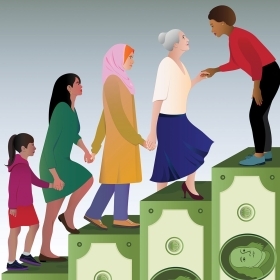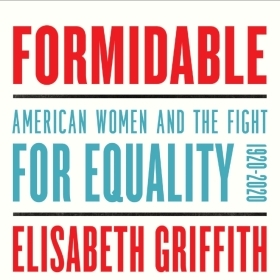The morning Ann Velenchik, associate professor of economics and writing, returned to work at Wellesley after the birth of her daughter, she found herself unable to get out of her car. “It was January of 2002,” she recalls. “I was sitting in my car weeping, because I just didn’t want to go back. And the passenger side door opened and Diana Chapman Walsh [’66], the president of the College, got into my car and closed the door.”
Walsh then said something Velenchik will never forget. She put her hand on Velenchik’s arm, “And she said, ‘It is perfectly OK to feel regret. Because you can’t be in two places at once. And there will be things you will miss, but you have nothing to feel guilty for.’”
Velenchik says she has shared the same message with “7 million young mothers” since then. “I wish everybody in the universe could cry in public, and then have Diana Chapman Walsh get into their car,” she says.
That moment, and her own experience as a working mother, informs Velenchik’s teaching. In her first-year writing class, Having It All? The Problem of Women and Work, her students hone their writing skills while they grapple with questions about the economic and social roles they will face as they move into the world and decide how, when, or whether to start families of their own.
While it might seem unusual to have an economist teaching a writing class, such interdisciplinarity has been the norm for decades at the College. “Wellesley started a first-year writing program separate from the English department in the early 1980s,” Velenchik says. “People from all sorts of disciplines teach in the program.”
After several years working as a dean, Velenchik returned to the classroom. “I thought, what can I teach that will be interesting to students that would speak to my background as an economist?” she says. In a previous class, American Women in the American Labor Market, she had focused on the wage gap. “If you push really hard at the wage gap, you discover that most of the earnings gap left between men and women is probably not systematic discrimination in the labor market. It’s probably that the world is set up so that workplaces, especially at the upper end of the income distribution, want you to be at work all the time, be always available all the time. Human beings can’t do that and raise children.” The Having It All? class addresses that issue head-on.
Velenchik designed the class in part, she says, because “It has long been my belief that Wellesley doesn’t talk enough or publicly about the question of work-life balance, or work-life integration, and probably doesn’t advocate forcefully enough for the kind of government policies that actually support the notion that two parents can both work and have children. This is the only industrialized country in the world in which care for your children is your problem.”
The class also talked about the effect of the pandemic on women in the labor market. To give her students hands-on experience with interviewing and writing about how social issues affect real people, Velenchik worked with the Alumnae Association to match them with alums. “Forty-some Wellesley alums with children are willing to be interviewed,” she says.








We ask that those who engage in Wellesley magazine's online community act with honesty, integrity, and respect. (Remember the honor code, alums?) We reserve the right to remove comments by impersonators or comments that are not civil and relevant to the subject at hand. By posting here, you are permitting Wellesley magazine to edit and republish your comment in all media. Please remember that all posts are public.